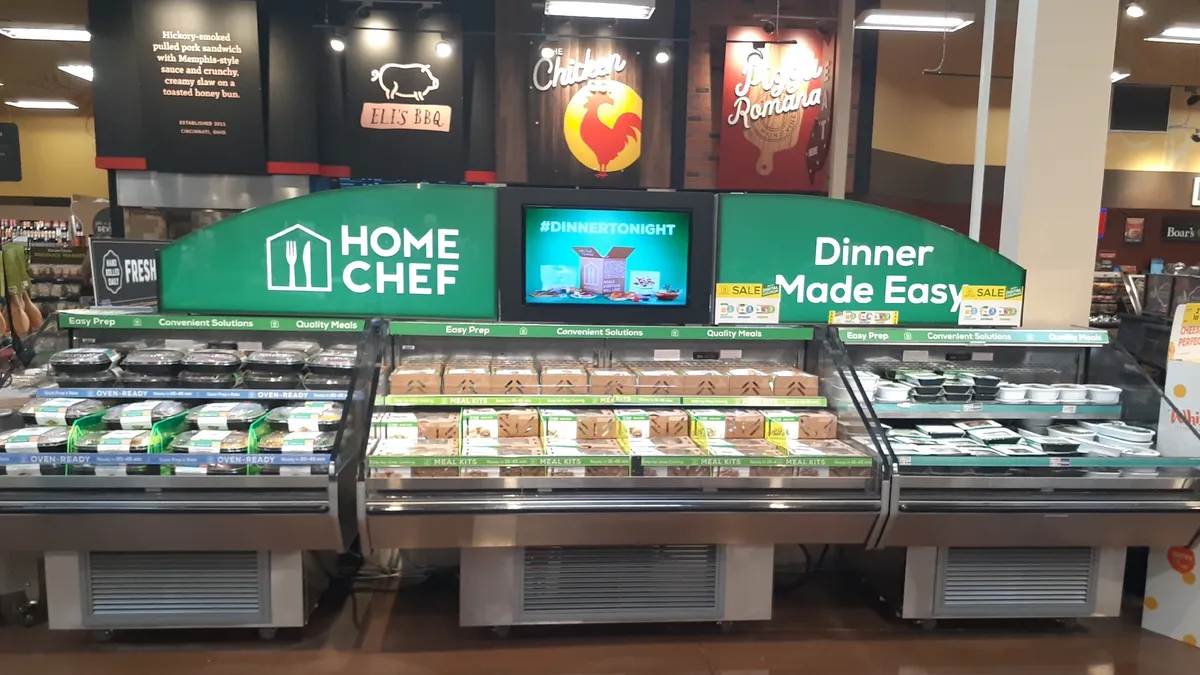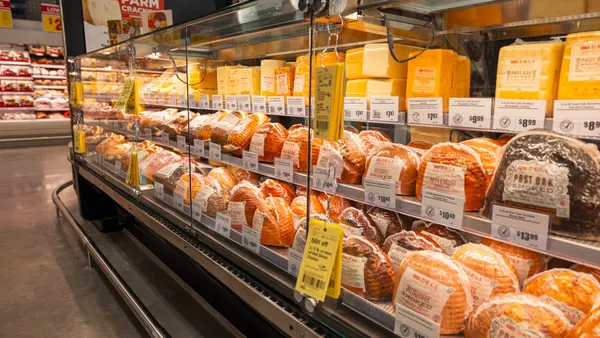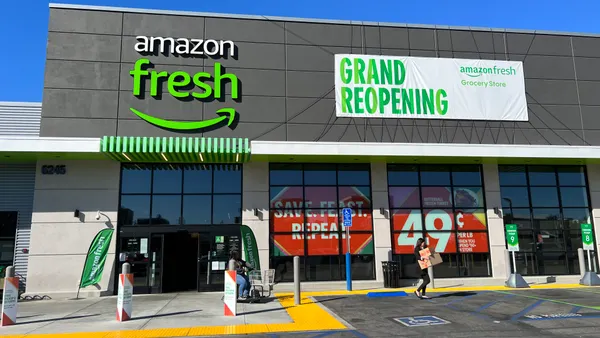Dive Brief:
- Home Chef announced Tuesday the launch of a new sustainability-focused program that will redirect surplus food and reduce waste in its manufacturing and production process.
- The meal kit company partnered with local nonprofit organizations across its four facilities to streamline the food donation process.
- These latest efforts build on Home Chef’s commitment to reach the USDA and EPA’s goal of a 50% reduction in food waste and loss by 2030.
Dive Insight:
Home Chef’s food waste sustainability efforts look to address the issue both in the company’s production process as well as in customers’ homes.
The meal kit maker’s tie-ups with local nonprofits across the country will minimize waste within its facilities and “maximize” its food donations, Cody Ferrantino, Home Chef’s program manager of sustainability and impact, said in a statement.
Home Chef’s Baltimore facility will donate food to 4MyCiTy, a nonprofit addressing organic waste’s impact and food security, and its Atlanta location will provide food to Reflections of Trinity, a weekly food and grocery donations distribution service. The company’s San Bernardino, California, location entered a tie-up with food bank nonprofit Community Action Partnership, and the Chicago facility donates food to Rescuing Leftover Cuisine, an organization that transports and delivers food to other nonprofits serving food-insecure communities.
Other partnerships allow Home Chef to recycle organic waste through methods like composting and anaerobic digestion, the press release noted.
The meal kit company’s products sold in over 2,400 Kroger stores are also recycled through the grocer’s Zero Hunger | Zero Waste program.
To prevent food waste on the customer end, Home Chef said its culinary team continues to carefully portion and consolidate the ingredients in its meal kits to minimize surplus.
As food waste initiatives continue to grow among food retailers, efforts have reached a national level. In February, FMI — The Food Industry Association threw support behind the Draft National Strategy for Reducing Food Loss and Waste and Recycling Organics drafted by the U.S. Environmental Protection Agency, U.S. Department of Agriculture and the U.S. Food and Drug Administration.
This National Strategy aims to reduce food loss and waste, increase recycling of organic materials, reduce greenhouse gas emissions and more, with FMI noting in its comments about the National Strategy that it can play a key role in enhancing the efforts of already existing and well-established food waste programs.















